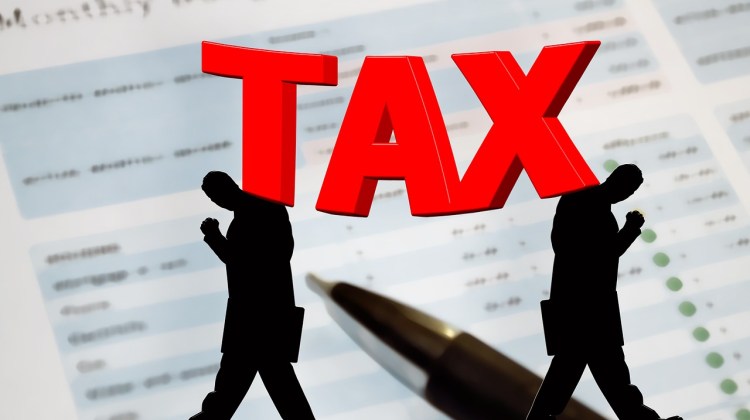
The letter below is a consolidated version of several emails we exchanged with this author.
Q –
Angela,
I love your e-zine, and have learned a lot.
My publisher, which is a non-profit, has been falsifying the amount of royalties on my 1099s. In short, what they are reporting for the past 10 years has been up to 100 times more than what they are paying me. They also haven’t filed a Form 990 in several years.
I know you are not an attorney, but am wondering if you have come across this type of situation before, and might be able to shed some light on it.
A –
I am not a CPA nor a tax attorney so I can’t offer you financial or tax advice. Only an attorney or CPA can do that. That said…
In a subsequent email, you reported that you know they’re not filing their Form 990 because those are made available to the public.
“Form 990 is a United States Internal Revenue Service form that provides the public with financial information about a nonprofit organization.” – Wikipedia (because the I.R.S. definition was way too long)
“The 1099 form is a series of documents the Internal Revenue Service (IRS) refers to as ‘information returns.’ There are a number of different 1099 forms that report the various types of income you may receive throughout the year other than the salary your employer pays you.” – Internal Revenue Service
Publishers report royalties paid to their authors using a 1099 unless those payments are made by a third-party processor. In those cases, the payment processor (like Paypal) would be responsible for any required tax reporting. Incidentally, firms like Paypal only have to report on cumulative payments exceeding $20K per recipient, or 200 transactions paid to that recipient, in a calendar year. Publishers’ thresholds for reporting are far lower.
If your publisher has been sending you and the IRS 1099s that have incorrect amounts on them, here is what I would do if I was in your situation:
1. Send a certified letter to the IRS explaining the situation, and providing them with year-by-year detail about how much your publisher really paid you vs. what they reported on Form 1099 in each respective year. Offer to provide them with copies of your bank statements to prove your actual income. When you do, highlight the deposit amounts for payments received from your publisher. That may or may not work. If others are also reporting tax form discrepancies by this publisher, this will be in your favor.
2. Report to the IRS that it appears they are not filing their 990 returns as required by law since they aren’t available for public review.
3. Copy the organization on all of your correspondence with the I.R.S. so they know you mean business. BUT DON’T SEND THEM YOUR BANK STATEMENTS! Perhaps they will then quickly agree to submit corrected forms to the I.R.S. Let the I.R.S. know you are sending copies of your correspondence to the non-profit.
If they are truly not filing these returns, it’s possible they’re not filing others as well. They may not even be
contributing their employees’ payroll withholding to the government if they’re in that deep. If that’s the case, someone at that firm may end up going to jail.
If they are over-reporting your income, that means they are claiming an expense that did not occur. If it’s happening year after year, it seems to me that it’s intentional. If that’s the case, they are committing tax fraud.
All of this could (and should) trigger an audit of their organization. With each tax return you file, only claim your
actual income, and send copies of the items above to the IRS with your return, stating that the organization continues to report your income at 100 times what they actually paid you.
Sadly, it’s up to you to prove you didn’t earn the money, especially if the organization is not responding to you, nor to the I.R.S.
While many tax attorneys online recommend victims of this type of fraud hire an attorney, that might not be the best, nor most affordable, course of action in the beginning. I mean…if they can’t afford to pay their taxes, it’s doubtful they’ll have the money to pay any court judgement you win against them.
Instead, as your first step, send the items above to the IRS Taxpayer Advocate’s office.
There’s an article on this type of 1099 fraud RIGHT HERE and it’s pretty frightening.
HAVE A WRITING- OR PUBLISHING RELATED QUESTION FOR ANGELA? Contact her RIGHT HERE.
RELATED
Tax Breaks for Freelance Writers! by Julian Block
When Your Customer Commits Fraud
JUST IN TIME FOR TAX SEASON! A FREE COPY OF Introductory Financial Accounting FOR WRITERSWEEKLY READERS! Thanks, A.J.!!
Easy, Upside-down Budgeting For Freelancers With Fluctuating Incomes! By Bonnie Juettner Fernandes
Is Your Defunct Publisher Still Selling Your Book, and Pocketing All the Money? HERE’S HOW TO GET AMAZON TO REMOVE YOUR BOOK FROM THEIR SITE!
Read More "Ask The Expert" Articles

Joel's BookProgram: The Simple Secret To Writing A Non-Fiction Book In 30 Days, At 1 Hour A Day! - SECOND EDITION

If you are a solo professional, having your own book is one of the best investments of time and money you can make, to promote your business and gain more clients. Why?
- If you are an author, you are an authority--an expert in your field.
- A book is a tangible credential.
- Your book can differentiate you from your competition.
- It's an opportunity to explain your uniqueness, your "special sauce."
Order "The Simple Secret To Writing A Non-Fiction Book In 30 Days, At 1 Hour A Day!" right away. And picture yourself handing your own book to a prospect, in just a short time!



I thought there was a minimum amount of income to require filing a 990.
The local chess club is tax exempt and there is no 990 on file for them.
Based on the author’s inflated 1099s, their income would be above the $50K threshold in book sales. And, she’s not their only author. Not by a long shot.